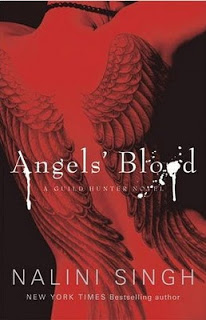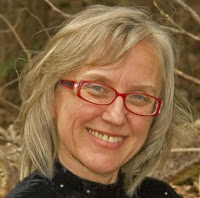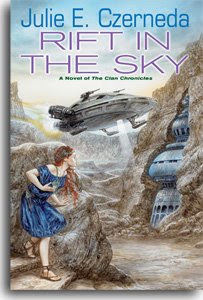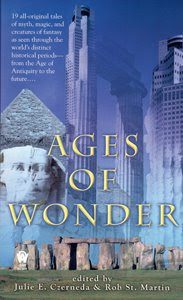
Nalini Singh is the New York Times and USA Today bestselling author of the Psy/Changeling and Guild Hunter series. Born in Fiji and raised in New Zealand, she spent three years living and working in Japan. Now back home in New Zealand, she is currently at work on her next Psy/Changeling novel.
You can see travel photos, read excerpts and find behind-the-scenes info on her books on her:
Website: www.nalinisingh.com
Blog: www.nalinisingh.blogspot.com
Facebook: www.facebook.com/nalinisingh
Twitter: www.twitter.com/nalinisingh
Paranormal romance has become a very successful genre over the past decade. For the benefit of blog readers who aren’t familiar with the genre, can you describe it?
Paranormal romances (pnr) are stories that encompass a wide range of elements beyond the norm – things like psychic abilities, vampires, alternate worlds, and shapeshifters to name a few.
Because of this, there’s a huge freedom in where you can go as a writer – and for readers, this means a wonderful breadth of choice. I think that depth and breadth of content is one of the strengths of pnr.
The three authors who come to mind when I think of paranormal romance are Laurell K. Hamilton (with her Anita Blake series), Charlaine Harris (with her Sookie Stackhouse series), and Mary Janice Davidson (with her Undead series). Each of these, to my mind, combines romance with horror. Would you say that the romance/horror combination is characteristic of paranormal romance, or do romance/science fiction and romance/fantasy also form an important part of the genre?
For me, the three series you’ve mentioned are more closely aligned with Urban Fantasy. UF and PNR are on the same continuum, but in very basic terms, urban fantasy tends to focus on one protagonist’s journey through a number of books, while pnr tends to tell the story of a different couple in each book.
I think one of the best things about pnr is that there are endless possibilities. Horror/sf/fantasy, all of these elements can, and have been utilized by different authors. For example, my book ANGELS’ BLOOD, is very dark and gritty, and could be said to have elements of horror. (This book actually has Urban Fantasy Romance on the spine, which speaks to the overlap between pnr and uf). However, my Psy/Changeling series has elements of science fiction.
 In addition to your own work, which paranormal romance writers and novels do you particularly recommend?
In addition to your own work, which paranormal romance writers and novels do you particularly recommend?
As I’ve noted above, the brilliant thing about pnr as a genre is that it is so huge. If a reader wanted to dip their toes into the water, I’d suggest trying a number of different authors and series – not every author works for every reader, but by that same token, there are lots of diverse and vibrant voices in this sub-genre.
Some of my recommendations:
PNR: Meljean Brook, Jayne Castle, Christine Feehan, Lora Leigh
Urban Fantasy: Patricia Briggs, Ilona Andrews
I’d also recommend Anne Bishop’s Black Jewels Trilogy. It’s dark fantasy with a romantic thread, but most readers of pnr really enjoy this series.
If you’re looking for a PNR with fantasy, C.L. Wilson’s Lord of the Fading Lands is brilliant.
And Kay Hooper does a wonderful thriller/mystery series (Bishops/SCU) that also has paranormal / romance threads.
I see that your work has been commended for its strong world-building — and world-building is one of the things I most enjoy about both writing and reading science fiction. How do you go about building the worlds in which your stories take place?
My writing style is very character-based, so I tend to let my characters show me their world. I see through their eyes, and each time they turn, there’s something new to discover.
However, given that I write series, I also maintain complete notes about the world – continuity is so important in world-building, and I make a lot of effort to ensure that it’s maintained from book to book. Nothing makes me crazier as a reader than a writer who doesn’t follow the rules of her own world.
What are the main series you have written or are writing?
I write the Psy/Changeling series, which is set in the not too distant future and features three races—humans, the Psy (who have powerful psychic abilities), and the changelings (who can shapeshift into certain animals). Book one is SLAVE TO SENSATION.
I’ve also just begun the Guild Hunter series, which is set in an alternate earth where archangels hold sway over mortals, with vampires as their servants. Book one is ANGELS’ BLOOD.
They’re two very different series, and I really enjoy that. If your readers would like to check out either series, excerpts are available on my website.
What does it feel like to get on the New York Times best-seller list?
Amazing, stupendous, fantastic!! I still can’t believe it at times. ☺
I’m very impressed by your productivity as a writer. What kind of writing schedule do you maintain, and how do you balance this with the many demands on a successful author’s time?
I write pretty much every day, and I think that’s important, not just in terms of productivity, but also to flex and strengthen your writing muscles. I also set daily goals for myself and stick to them.
As for balance, that took me a while to work out, and what I found is that being flexible works for me. If, for some reason, I’m unable to put in productive hours on one day, I’ll work an extra hour or two over the next couple of days to bring myself back on track.
Paranormal romance appears to be a field where there is a lot of collaborative work – multi-author anthologies, and so forth. Have you got involved in many such projects, and do you enjoy taking part in them?
Most anthologies tend to be by-invitation, and I’ve been very lucky to be invited to participate in several, including a recent one headlined by the fantastic Charlaine Harris.
And yes, I love them because I really enjoy writing novellas.
What’s next for Nalini Singh?
I have the second book in my Guild Hunter series, ARCHANGEL’S KISS, releasing in February.
Then in July I have BONDS OF JUSTICE, the next book in my Psy/Changeling series, and in August, I have a novella from the same series in the BURNING UP anthology.
I’m very excited about all of these releases!

Nalini Singh Book Giveaway Offer
Nalini Singh has generously offered a signed copy of her book Angels’ Blood (US version – the cover image used in this interview is from the UK version) as a giveaway to accompany this interview. If you’d like to be in with a chance to win this copy of Angels’ Blood, you need to either (1) Make a comment on this blog post or (2) follow me on Twitter (http://twitter.com/senjmito) and then send me a tweet saying why you’d like a copy. The deadline is one week from today: 5pm on Thursday 24 December (New Zealand time). If you are making a comment on the blog, please include your email address or Twitter or Facebook ID so I have a way of contacting you to get your address details.
Happy commenting and tweeting!
UPDATE: Helen Lowe has interviewed Nalini Singh for Plains FM. You can listen to the interview online, or download the interview in mp3 format, on the Plains FM site.






